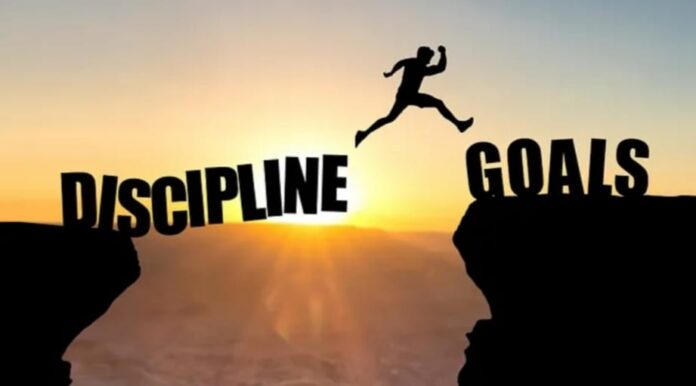Is there a goal you want to accomplish, but you just can’t seem to follow through? Maybe you know exactly what you need to do, but just can’t seem to do it. Perhaps you’re frustrated because you don’t know how to build discipline and it’s affecting your confidence, career trajectory, health, weight or relationships.
If success could always be achieved by doing something just once, everyone would be successful. However, the truth is anything worth striving for takes time, effort, and a lot of self-discipline in between.
Self-discipline means self-control, inner strength, and control of yourself and your reactions.
Building this skill requires common sense, making priorities, and thinking before acting. Contrary to common belief, to build self-discipline does not mean being harsh on yourself, or living a limited, restrictive lifestyle. However, though most people acknowledge its importance, few do something to strengthen it.
This skill gives you the power to stick to your decisions and follow them through, without changing your mind. That’s why it is one of the important requirements for achieving goals and carrying out tasks.
Self-Discipline Definition
- To better understand this topic, here are a few definitions.
- This skill means self-control, the ability to avoid unhealthy excess of anything that could lead to negative consequences.
- It means perseverance and not giving up.
- This is the inner strength and resolution to continue and not give up.
- It is the ability to have your goal in mind and pursue your plans, despite difficulties and the temptations to abandon them.
- The ability to delay instant gratification in favour of accomplishing long term goals.
A disciplined person is more punctual than other people, possesses the habit of persistence, and is more likely to take control and responsibility for his or her life. Such a person can set goals and take concrete steps to achieve them.
It will be easier for you to gain self-discipline, if you:
- Understand its importance in your life.
- Become aware of your undisciplined behaviour and its consequences. When this awareness increases, you will be more convinced of the need to make a change in your life.
- Make an effort to act according to the decisions you make. Do so, regardless of laziness, or the desire to give up and stop what you are doing.
Why Is Self-Discipline Important?
- This skill enables you to persevere with your decisions and plans until you accomplish them.
- In order to reach your goals, a good measure of discipline is most helpful.
- It imparts you the ability to persevere.
- It is a power that helps you stay motivated.
- If you wish to have resolution, persistence, single-mindedness and staying power, you need to develop this skill.
With this skill well-developed, it becomes easier to build up good habits and get rid of bad ones.
It also becomes easier to overcome addictions, overeating, procrastinating and laziness.
You don’t have to feel bad if you currently lack this ability. It is a skill, which you can improve with the right exercises.
Lack of Self-Discipline
Lack of self-discipline can lead to failure, loss, spoiling of relationships, health problems, obesity and unhappiness. Here are a few examples:
- You might not be able to resist eating a cone of ice cream when you are trying to lose weight.
- Sometimes, you might react in anger or act impulsively, and therefore, hurt the people you love.
- Becoming addicted to the social media and unable to put your smartphone away for a little while?
- If you lack this skill, you will not be able to persevere with your plans or carry out your decisions.
- Inability to curb anger.
- You might hurt your health if you lack the inner strength to exercise your body and stop overeating.
- Lack of discipline is one other main reason for failure with lose weight.
Examples of Self-Discipline
Self-discipline includes many processes, such as planning, self-monitoring, and sustained effort. As you can see, self-discipline is an important life skill that has implications in many areas, such as:
Healthy habits: Having the self-discipline to get enough sleep, eat nutritious food, and avoid bad habits, such as smoking, have great benefits for your mental and physical health.
Work: Self-discipline is important for work and career because it keeps you focused on reaching your goals, whether they are big or small.
Money management: Making wise financial decisions includes being self-disciplined with money.
Emotion regulation: When you learn self-discipline, you make an effort to express your emotions in healthy ways and learn how to cope with stressful situations or disappointments.
Time management: Probably one of the hardest things to do in our society is apply self-discipline to time management. But learning how to manage your time wisely can have positive benefits for your personal and professional life.
Get out of your comfort zone, take control of your life, and become the master of your life.


































